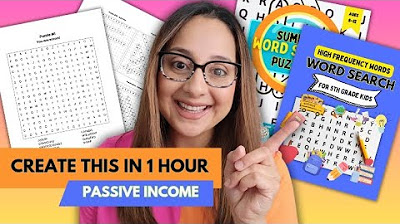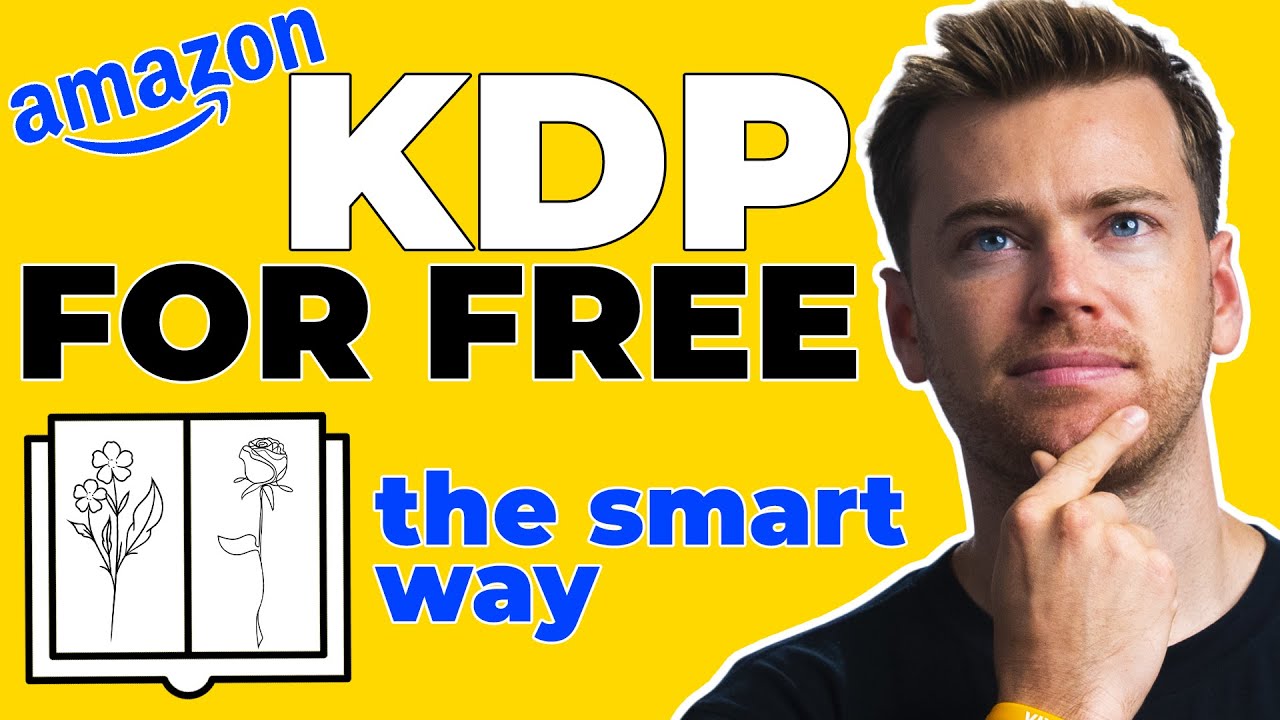Lecture #12: Publishing Part One — Brandon Sanderson on Writing Science Fiction and Fantasy
TLDRThe video discusses traditional book publishing, focusing on the process of acquiring an agent and selling a manuscript to a publisher. It explains the roles of agents, editors, publishers, imprints, and more in the publishing industry. Tips are provided for querying agents and editors, negotiating contracts, working with editors, and what to watch out for regarding dubious publishers or agents. Comparisons are drawn between traditional publishing and the emerging self-publishing industry. Overall, it aims to demystify the world of publishing for aspiring authors seeking to publish their first book.
Takeaways
- 😀 Most books today are sold through agents rather than directly to publishers
- 👥 An agent's job is to represent the author, negotiate contracts, and sell books overseas
- 💰 Advances for first books average around $10k, split between signing and publication
- 📝 Editors help make the book better but don't force changes - you have final say
- 🌟 Bigger advances don't guarantee higher sales but do mean more marketing support
- 🎨 The cover aims to appeal to the right audience, not illustrate the book accurately
- 🤝 Midlist authors have dedicated fans but smaller reach - they often go indie now
- ❌ Stay away from vanity presses that charge you money to publish your book
- 👍 Signing a multi-book deal helps ensure the publisher supports your growth
- 📈 Bidding wars between publishers can drive up advances into the millions
Q & A
What is the difference between a convention and a conference in publishing?
-A convention is a fan-run event focused on fans connecting, like WorldCon or ComicCon. A conference is more professionally focused, where authors pay to attend workshops and pitch sessions with agents and editors.
What should you ask an editor instead of 'what are you looking for' when trying to understand their interests?
-Ask 'what is the most recent book by a new author that you acquired and why did you acquire it?' This allows them to talk about what made them excited about a new book rather than feel pigeonholed.
What are some warning signs you should look out for with literary agents?
-Warning signs include: asking for money upfront beyond minor postage fees, asking for endless revisions without submitting your work, being unable to provide details on editors submitted to, and not having other client books physically on shelves in bookstores.
How can advances for first-time authors range so widely from $5,000 to $20,000?
-The editor and publisher use 'imaginary numbers' and profit and loss projections to guess how well the book might sell based on comparable titles. This sets the negotiation range, but bidding wars between publishers can also drive up advances.
What is the difference between publicity and marketing for a book?
-Publicity is money put towards an author tour or similar direct outreach. Marketing is money put towards general consumer advertising and convincing booksellers to prominently display/push a title.
Why is selling a two-book deal generally better for a first-time author than just selling one book?
-It gets the publisher invested in growing the author over time rather than cutting them after just one book. It also allows the author to renegotiate after establishing themselves more with the first book(s).
How has the publishing industry shifted towards more 'hit-driven' books versus midlist authors?
-The rise of indie publishing has pulled many midlist authors out of traditional publishing deals. Brick-and-mortar consolidation also led niche books to lose visibility as bigger chains took over.
What does an editor do versus a publisher in the book acquisition process?
-The publisher handles business and strategy. The editor serves an almost project manager role overseeing manuscript revisions, cover design, and other production details to make the book itself better.
What percentage of royalties do literary agents typically take?
-Literary agents generally take a standard 15% commission on all deals they broker for an author. This includes initial publisher advance and all subsequent royalties.
When should you consider giving up on finding a literary agent?
-The only good reason to give up on finding an agent is if you decide to pursue indie publishing instead. Otherwise, persistent querying is key to traditional publishing.
Outlines
😊 Intro and Technical Difficulties
Adam and Brandon introduce the lecture and deal with some technical difficulties getting set up and making sure students can access the link to join.
📚 Overview of Publishing Lecture Topics
Brandon explains the topics that will be covered in this lecture on publishing, including agents, marketing yourself to publishers, the people involved behind the scenes in publishing a book, and the process from acquisition to release.
🎤 Clarification on Conference vs Conventions
Brandon clarifies the difference between conferences and conventions when networking and meeting industry professionals.
🤝 Query Letters and Making Connections
Brandon advises on writing strong personalized query letters, researching editors and publishers, and making connections at conferences to skip the querying stage.
🚦 Red Flags with Agents
Brandon covers some red flags to watch out for when evaluating potential literary agents to work with, including vanity publishing, excessive editing requests, transparency issues, and fees.
📈 What is a Midlist Author?
Brandon explains what defines a midlist author in publishing - essentially someone earning a part-time living from writing, likely $10K to $100K per year.
✍️ When is a Manuscript Ready?
Brandon recommends having a solid third draft with early reader feedback before submitting a manuscript to an agent or publisher.
💡 Lightning Round Q&A
Brandon provides brief answers to several audience questions on topics like indie publishing, the value of advances, and tracking industry news.
😎 The Pros of Working with Agents
Brandon covers some of the key benefits agents provide, including industry relationships, contract negotiating, overseas rights, and editorial guidance.
😠 The Cons of Working with Agents
Brandon discusses some of the common complaints about literary agents, like their 15% cut, editorial interference, and potential conflicts of interest.
🎉 What Happens When Your Book is Acquired
Brandon explains the process after a publisher acquires your book, including advance offers, working with editors, marketing, and eventual release.
➡️ Coming Up Next Week...
Brandon promises to cover more reader questions, indie publishing, and contracts in next week's publishing lecture.
Mindmap
Keywords
💡publisher
💡imprint
💡advance
💡agent
💡acquisitions editor
💡midlist
💡cover
💡publicity
💡slush pile
💡hybrid author
Highlights
Publishers need books to publish and can't rely on bestselling authors forever
Agents know the publishing industry and can negotiate better deals for authors
Some agents may request too many revisions before submitting manuscripts
Going to writing conferences can help authors network and meet agents/editors
Make sure an agent has sold books for other authors that are in bookstores recently
Standard first book advance for new authors is around $10,000 split into payments
Higher advances generally mean publishers will market a book more heavily
An editor's job is to help authors make the best possible version of their book
Book covers aim to attract the right readers, not illustrate the book accurately
Indie publishing has reduced publishers' midlist authors significantly
Query letters should hook with compelling premise and author credentials
Approach editors at conferences to bypass querying and get sample chapter requests
Make sure to research editors and imprints before submitting manuscripts
Midlist authors typically earn $10k-$100k per year from writing
Consider being a hybrid author open to both traditional and indie publishing
Transcripts
Browse More Related Video

Lecture #13: Publishing Part Two — Brandon Sanderson on Writing Science Fiction and Fantasy

I Made $120,000 From Amazon KDP & Learnt These VITAL Things.....

I Tried Selling NOTEBOOKS on Amazon KDP for 1 Year... (Here Are The Real Results)

Create a Word Search Puzzle Book using ChatGPT, Canva, and Generator (Step by Step Tutorial)

Do THIS Instead of KDP Low Content Books!

Create KDP Word Search Books FAST - Book Bolt Tutorial
5.0 / 5 (0 votes)
Thanks for rating: